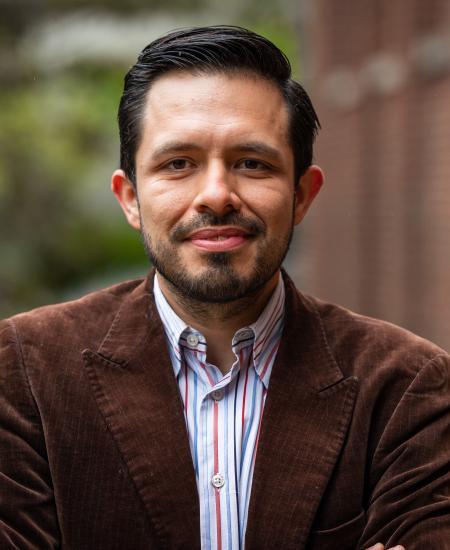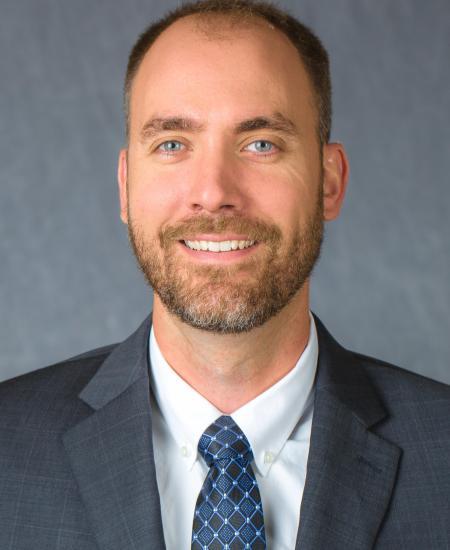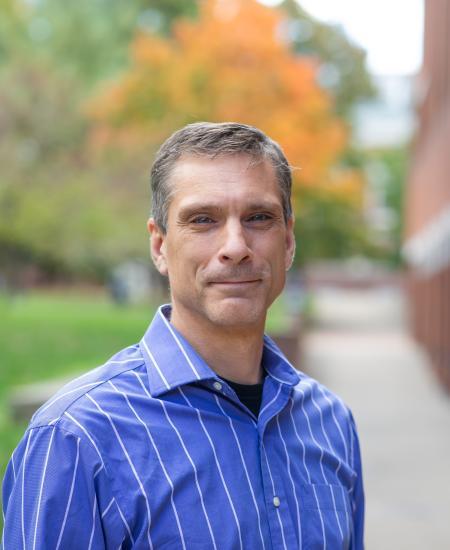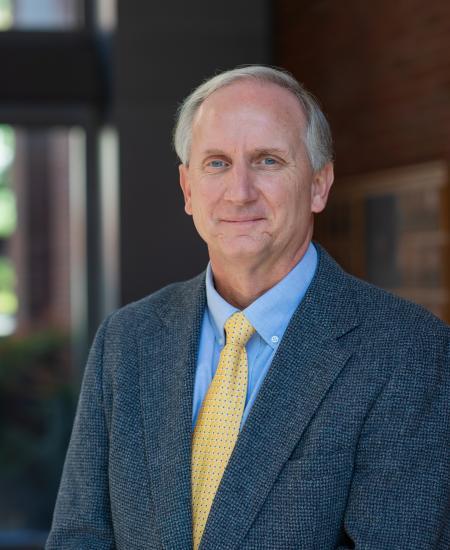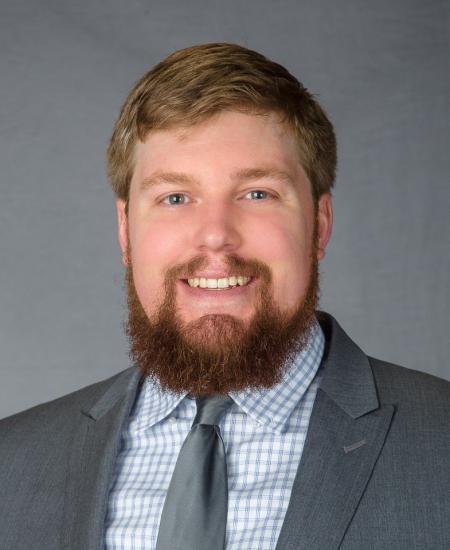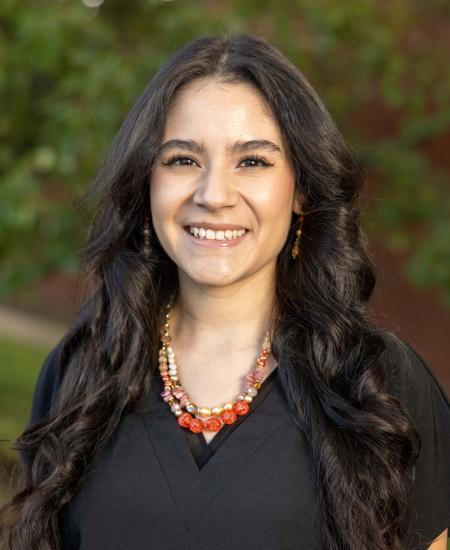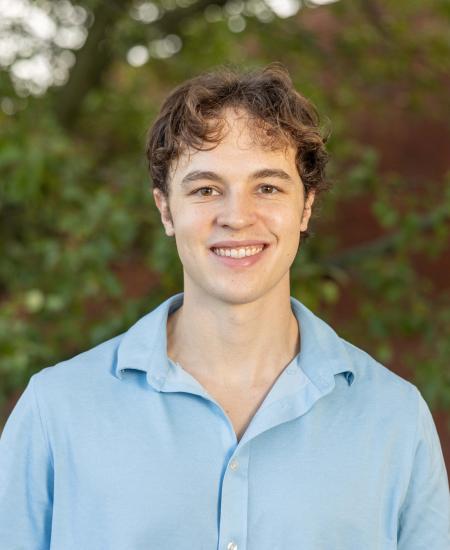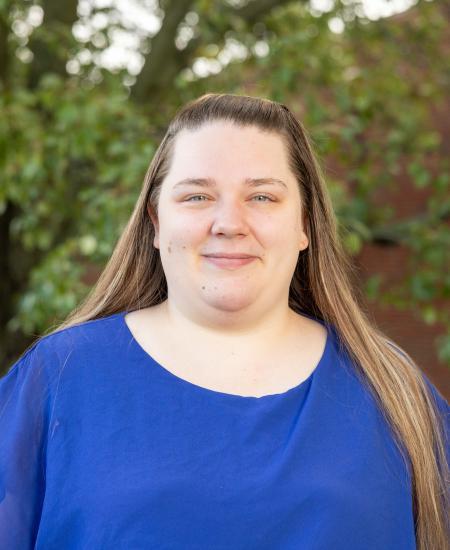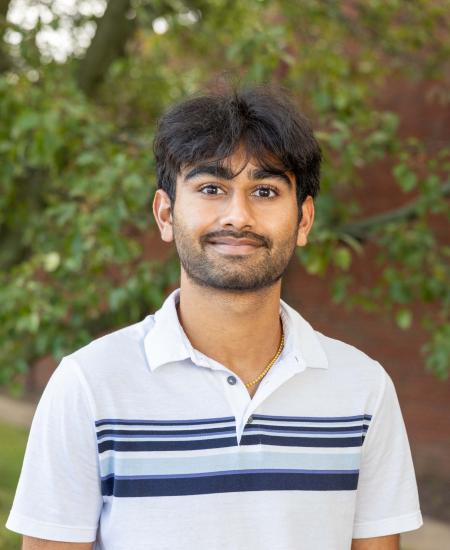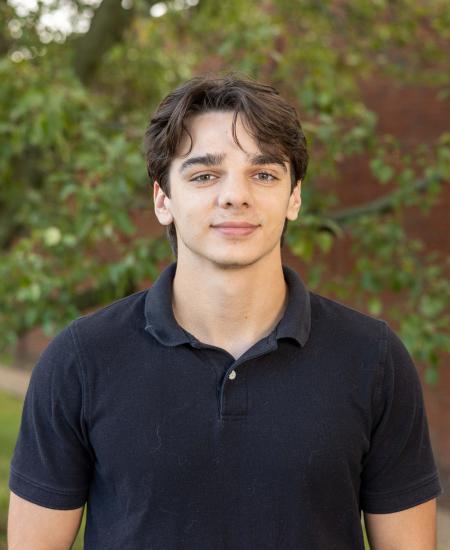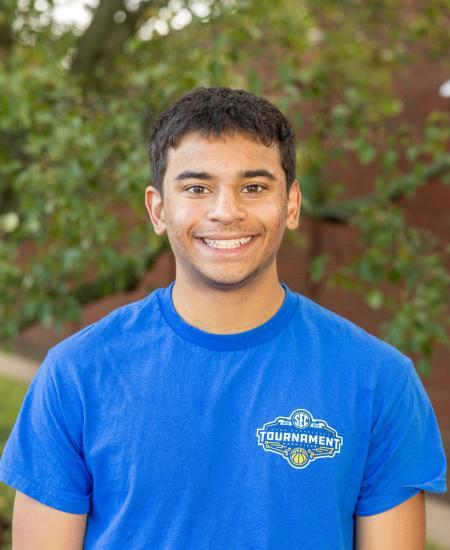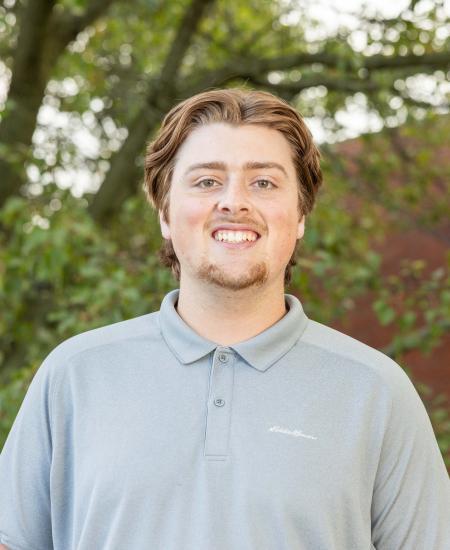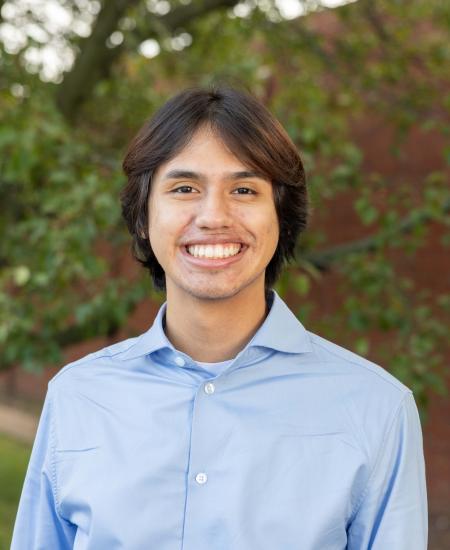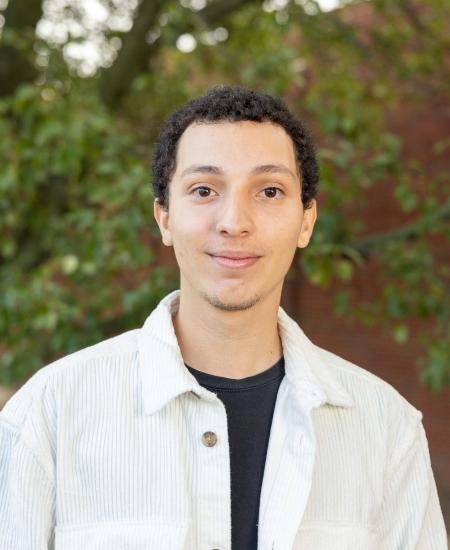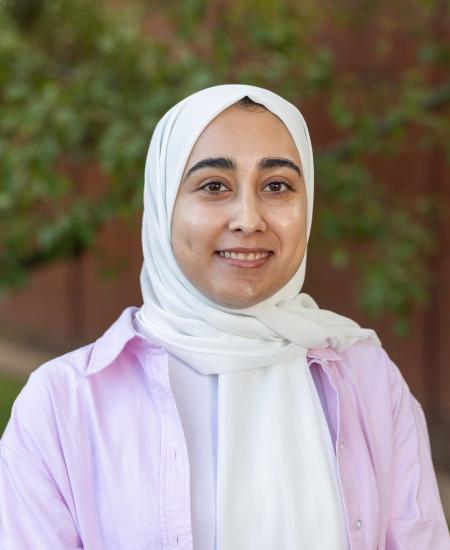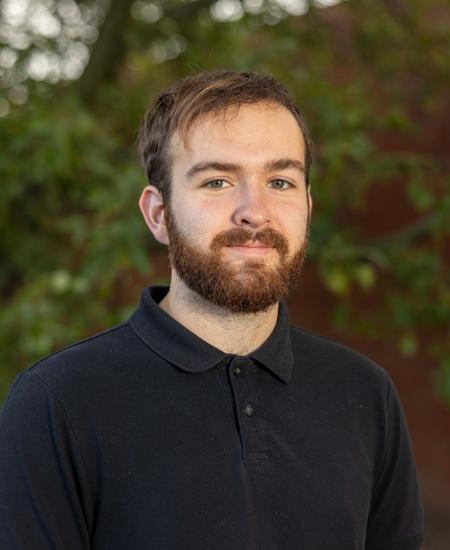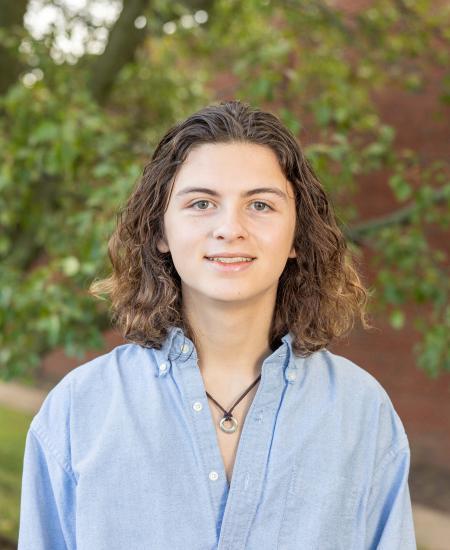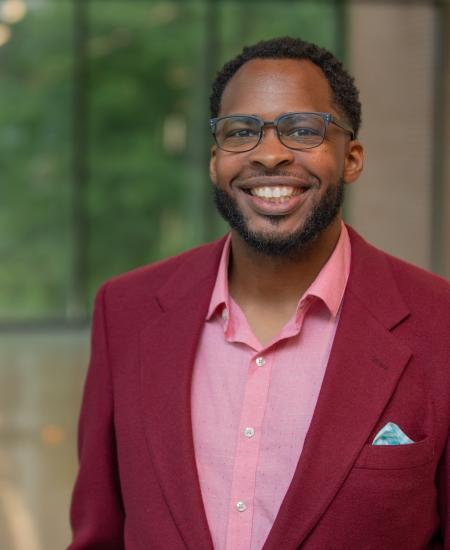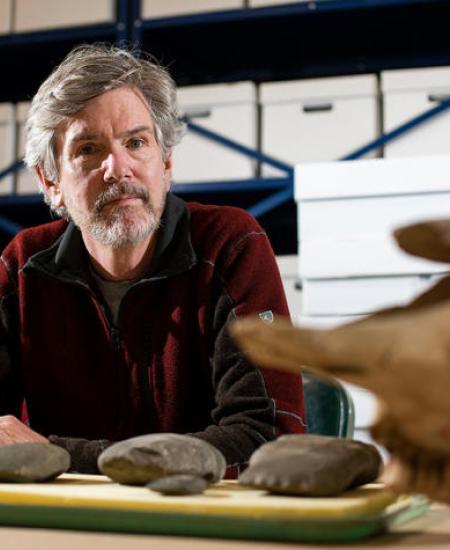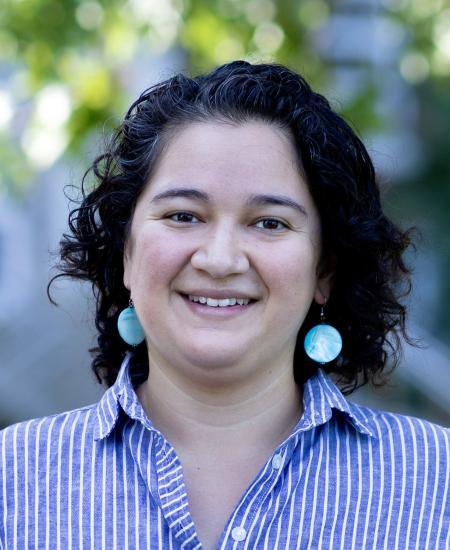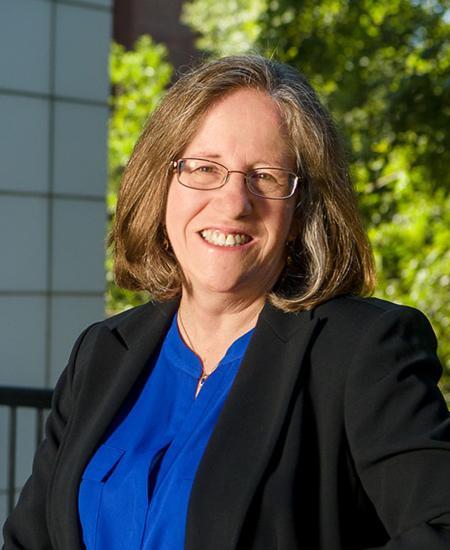People
Principal Investigator
W. Brent Seales
Brent Seales is the Alumni Professor of Computer Science at the University of Kentucky, where he has been teaching and mentoring students since 1991. He holds degrees from the University of Wisconsin (Ph.D. and M.S.), and the University of Southwestern Louisiana (B.S.). The focus of his research for the past 20 years has been on using advanced technology to restore and redeem cultural and historical artifacts from the ravages of time. The challenge of rescuing texts that may be central to Biblical scholarship and the formation of the ancient world is a primary passion.
As a result of his innovations, including the invention of "virtual unwrapping," Dr. Seales has become renowned by collectors and curators across the globe, earning a reputation as "the guy who can read the unreadable:· In 2015, Seales and his research team used virtual unwrapping to reveal, for the first time ever, a complete text from a manuscript so damaged it would never be opened and read via traditional means. The text was identified as the oldest known Hebrew copy of the book of Leviticus (other than the Dead Sea Scrolls), carbon dated to the third century C.E. The reading of the text from within the damaged scroll received international recognition from Science Advances, The New York Times, Le Monde, and The Times of London, among others, and has been hailed as one of the most significant discoveries in biblical archaeology of the past decade.
Dr. Seales has been awarded competitive extramural funding from the Andrew W. Mellon Foundation. the National Endowment for the Humanities (NEH), the National Science Foundation, and the United Kingdom's Arts & Humanities Research Council. He was a Google Visiting Scientist in Paris (2012-13), where he continued work on the "virtual unwrapping" of the Herculaneum scrolls. He most recently served as a Getty Conservation Institute Scholar (2019-20). where he developed data science and infrastructure approaches to the study of cultural heritage in all its forms. He is Pl on the EduceLab project, a first-of-its-kind world class heritage science lab to be built at the University of Kentucky.
Honors & Awards
Getty Conservation Institute Scholar
SEC Faculty Achievement Award
Great Teacher Award, UK Alumni Association
Guest Lecturer, Friends of Herculaneum Societies:
Oxford, England: Naples, Italy; and The Sorbonne, Paris
Visiting Scientist. Google France
lnstitut de France. Two-time Invited Lecturer (in French)
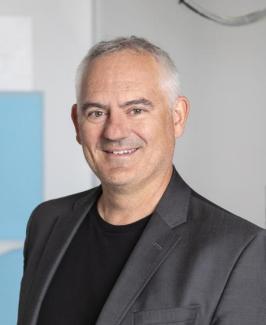
W. Brent Seales, Ph.D.
Stanley and Karen Pigman Heritage Science Chair; Director of Graduate Studies, Data Science
Department of Computer Science
Co-Principal Investigators
John Balk - Professor, Chemical and Materials Engineering
John Balk is the Associate Dean for Research and Graduate Studies in the UK College of Engineering, and is a professor of Materials
Science and Engineering at the University of Kentucky (UK) in the Department of Chemical and Materials Engineering. He is also Director of the Electron Microscopy Center, which annually serves over 100 research groups from seven colleges across the university as well as numerous external customers and researchers.
Balk received his BS degree in 1995 from the University of California, Berkeley, where he double-majored in mechanical engineering and materials science & engineering. He received MS and PhD degrees in materials science & engineering from The Johns Hopkins University, in 1997 and 2000, respectively. Before coming to UK, he was a staff scientist at the Max-Planck-Institute for Metals Research in Stuttgart, Germany, where he also completed two years of post-doctoral work. He is a registered Professional Engineer in the Commonwealth of Kentucky and has maintained continuous licensure since 2009.
The Balk research group works to understand structure-property relationships in the behavior of metals, alloys and electronic materials. His group explores the deformation mechanisms that operate in nanoporous metals and alloys, and he has worked in this area since coming to UK. His research also focuses on materials issues related to the processing and operation of thermionic dispenser cathodes, which are high-emission electron sources for radar and communication systems. More recently, his group has begun working on combinatorial approaches to the development, characterization and testing of high entropy alloys, which represent a novel class of emerging materials for high-temperature structural applications. Characterization of the structure and properties of advanced materials is the cross-cutting aspect of his research program.
Hugo Reyes-Centeno - Assistant Professor, Anthropology
Dr. Hugo Reyes-Centeno investigates human evolution over the last million years, investigating the emergence of human anatomy as
well as the mode and timing of human dispersals. He is an expert in the application of computed tomography and geometric morphometrics in natural and cultural heritage contexts. Dr. Reyes-Centeno conducts inter-disciplinary research on the association between anatomical, genetic, and linguistic diversity in modern human populations. Reyes- Centeno completed a bachelor’s degree in the Department of Anthropological Sciences at Stanford University (California), a master’s degree in the Department of Biology and Evolution at the University of Ferrara (Italy), and a doctoral degree in the Institute of Archaeological Sciences at the University of Tübingen and the Senckenberg Center for Human Evolution and Paleoenvironment (Germany). He was Scientific Coordinator of the Humanities Center for Advanced Studies “Words, Bones, Genes, Tools” at the University of Tübingen prior to appointment to Assistant Professor at the University of Kentucky in 2020. Dr. Reyes- Centeno has performed paleontological and archaeological fieldwork in France, Italy, Peru, the Philippines, and Spain.
Michael Sama - Associate Professor, Biosystems Engineering
Dr. Michael Sama specializes in drone-based proximal and remote sensing techniques applied to agricultural and environmental monitoring. He has expertise in geospatial measurements, 3D reconstruction using LiDAR and photogrammetry, and analysis of spectral signatures using machine learning. As part of the EduceLab’s MOBILE team, Dr. Sama will contribute to field data collection and analysis at heritage sites.
Dr. Sama completed his B.S. in Computer and Systems Engineering at Rensselaer Polytechnic Institute followed by his M.S. and Ph.D. in Biosystems and Agricultural Engineering at the University of Kentucky. He directs activities at the Wildcat Agricultural and Atmospheric Research Pavilion (WAARP) – a drone flight facility at the University of Kentucky North Farm – which serves as a field laboratory for validating EduceLab’s MOBILE systems.
Christy Yarbrough Chapman, Assistant Research Professor, Associate Project Manager
Co-founder of EduceLab with Dr. Brent Seales, Christy helps direct the operations of EduceLab and, in particular, frames and tells the stories of our research – its technical achievements and broader impacts – to diverse audiences through myriad methods, from research articles to metadata. She also manages the relationships with all our stakeholders, including philanthropic donors, foundations, student researchers, collaborating academics, partner institutions, and media representatives. Her work includes mentoring students in the process of producing and disseminating research results; writing and editing articles, lectures, grant proposals, website pages, and other communication vehicles; managing our digital assets, including metadata development; and working with legal to develop proper contractual agreements. She has worked on a wide variety of international projects focused on challenging problems in digital restoration, including the virtual unwrapping of the scroll from En Gedi in the Dead Sea Scrolls collection and of the carbonized scrolls from Herculaneum. In addition, she helped launch and currently helps manage the renowned Vesuvius Challenge, a global open-science AI software development contest designed to engage the best and brightest minds in artificial intelligence to accelerate the virtual unwrapping of the Herculaneum scrolls. The AI tools developed by the Vesuvius Challenge led to the first-ever reading of extensive text from a still-sealed Herculaneum scroll. Her current research focuses on creating metadata tools that provide comprehensive digital provenance for all of our born-digital products, thereby engendering confidence in their status as objects for scholarly study.
Senior Personnel
Sean Bailey - Professor, Mechanical and Aerospace Engineering
After earning a doctorate at the University of Ottawa to study the turbulent interactions between rotating flows and turbulence, Dr. Bailey went to Princeton University as a Post-Doctoral Fellow. While there, he was promoted to Associate Research Scholar and contributed to fundamental research on high Reynolds number turbulence in wall-bounded flows. After joining the Department of Mechanical Engineering at the University of Kentucky in 2010 he continued his research in the experimental study of turbulent flows by developing approaches to use autonomous uncrewed aerial systems (UAS) to measure turbulence in the atmospheric boundary layer. This effort earned him a National Science Foundation CAREER award in 2014, which helped launch his work into a range of areas utilizing UAS for field work in environmental and atmospheric research. He is looking forward to applying this expertise towards heritage science by contributing to the development of EduceLab’s MOBILE capabilities.
James Griffioen - Director, Center for Computational Sciences; Professor, Computer Science
Dr. James Griffioen is the Director of the University of Kentucky Center for Computational Sciences (CCS) which provides advanced, high performance, research computing and data storage services to researchers across the university. He is Co-PI on an NSF project that is developing a statewide Kentucky Research Computing (KyRC) Cyberteam to advance research computing capabilities and training at Universities across the Commonwealth. CCS, and the broader KyRC Cyberteam, provide hardware infrastructure support as well as software and systems support for a wide range of research projects including support for emerging big data research requiring data analytics, machine learning, deep learning, artificial intelligence, natural language processing, and other related data science techniques.
Dr. Griffioen received his Ph.D degree in Computer Science from Purdue University and is a professor in the Computer Science at the University of Kentucky, where he serves as the Director of the Laboratory for Advanced Networking. He is a Co-PI and part of the leadership team on one of the early NSF Midscale projects which is developing the FABRIC network, a national research infrastructure to enable cutting-edge and exploratory research at-scale in networking, cybersecurity, distributed computing and storage systems, machine learning, and science applications. He research group also operates the national NSF GENI testbed network which supports thousands of students and researchers worldwide. His research interests include future internet architectures, programmable and software defined networks, network measurement and monitoring, network policies and economics, and cloud computing.
Michael Sama - Associate Professor, Biosystems Engineering
Dr. Michael Sama specializes in drone-based proximal and remote sensing techniques applied to agricultural and environmental monitoring. He has expertise in geospatial measurements, 3D reconstruction using LiDAR and photogrammetry, and analysis of spectral signatures using machine learning. As part of the EduceLab’s MOBILE team, Dr. Sama will contribute to field data collection and analysis at heritage sites.
Dr. Sama completed his B.S. in Computer and Systems Engineering at Rensselaer Polytechnic Institute followed by his M.S. and Ph.D. in Biosystems and Agricultural Engineering at the University of Kentucky. He directs activities at the Wildcat Agricultural and Atmospheric Research Pavilion (WAARP) – a drone flight facility at the University of Kentucky North Farm – which serves as a field laboratory for validating EduceLab’s MOBILE systems.
Michael J. Detisch - Research Associate Senior, BENCH Cluster
Michael J. Detisch is a Post-Doctoral Scholar in the Department of Chemical and Materials Engineering at the University of Kentucky. He has focused on research involving nanostructured materials synthesis and characterization and has applied these skills to a number of fields. Mike received his BS degree in Physics & Astronomy from the University of Kentucky in 2012. He later returned to UK to pursue graduate studies in Materials Science and Engineering where he graduated with his PhD in 2020.
During his doctoral work, Mike worked as part of two other multi-disciplinary research efforts, the biomimetic membrane research pillar of the EPSCoR program as well as the NIEHS Superfund Research Program center at UK focused on environmental and human health impacts of specific pollutants. This research focused on incorporating nanomaterials into composite membrane systems for environmental applications. Since that time Mike has worked as a Post-Doc in Dr. John Balk’s group as well as UK’s Electron Microscopy Center.
C. Seth Parker, Assistant Research Professor, FLEX Cluster
Seth oversees the day-to-day aspects of software development and works with students to plan and implement technical goals. Having been with the project since 2012, Seth was pivotal in the development of the virtual unwrapping software pipeline. While his interest in computer science pushes him to test the limits of technical achievement, his background in the humanities and media production brings with it a strong desire to restore the knowledge trapped inside ancient documents.
Doctoral Students
Monica Argumedo Rendon
Monica Argumedo Rendon is a chemist who completed her post-graduate training at Yale University’s Institute for the Preservation of Cultural Heritage (IPCH), where she investigated methods in art conservation. Born in El Salvador, Argumedo Rendon completed her undergraduate studies in Chemistry at Lone Star College and Austin College in Texas. Argumedo Rendon will be working in the BENCH cluster of EduceLab, combing her knowledge and experience with cultural heritage and materials engineering to find innovative ways to improve material heritage conservation treatment methods. She is enrolled in the Materials Science and Engineering doctoral program.
Sam Koontz
Sam Koontz is an anthropologist and computer scientist who completed post-graduate training at the cultural resource management firm Boone Archaeological Resource Consultants in New Mexico. A University of Kentucky alumnus, Koontz has conducted archaeological research projects in both academic and commercial settings around central Kentucky, southeast New Mexico, and southern Philippines. Koontz will be working in the MOBILE cluster of EduceLab to enhance the deployment of instrumentation in archaeological field projects and heritage sites. He is enrolled in the Anthropology graduate program.
Undergraduate Students
Tiffany Clark
Tiffany Clark is senior at the University of Kentucky majoring in Computer Science with minors in Mathematics and Criminology. Alongside her partner Sydney, Tiffany worked to develop a queryable relational database and website for ~3,500 Herculaneum scroll fragments last year. This summer, the database was revamped to become a graph database, and Tiffany is currently working on creating a web interface for the new database. This connected website will allow scholars to easily navigate through the images and data that EduceLab and partnering teams have collected over the years. She enjoys bonding and working with everyone on the team and is happy that she is getting a chance to combine her love for computer science with her interest in the humanities.
Nikhil Akula
Nikhil is currently a junior at the University of Kentucky majoring in Computer Science. Last year, Nikhil developed a method, alongside his college Ethan, that utilized machine learning techniques in order to enhance raw spectral images of physically unwrapped Herculaneum scrolls. Their goal was to amplify the contrast between the ink and papyrus to present scholars with the best possible image for the reading of the scrolls. This year, Nikhil is actively exploring alternative software solutions for X-ray fluorescence (XRF) analysis to enhance the identification of elemental compositions in cultural artifacts. Nikhil loves working with everyone in the lab and enjoys the challenges of developing this impactful project.
Braden Howell
Braden is currently a senior at the University of Kentucky majoring in Computer Science with a minor in Mathematics. Continuing the work on the Beam Bourbon Barrel Analysis project, his goal is to develop an application that will automate the data collection process to determine why bourbon barrels have been bursting for centuries. He is excited to work on a problem that has a real-world impact and will provide valuable experience in machine learning and computer vision. Outside of work, he enjoys weightlifting and playing with his puppy Zola. He hopes that more are given the opportunity to work with such an intelligent team and develop their skills as computer scientists.
Sahil Kutty-Poffenberger
Sahil Kutty-Poffenberger is currently a sophomore at the University of Kentucky, majoring in Computer Science and is a member of the Lewis Honors College. He is working on data collection and processing using 3D scanning technology. Each 3D scanning method offers unique advantages. Sahil’s work will provide insights into the advantages of various 3D scanners and their real-world applications, including topography, modeling, and more. He enjoys collaborating with everyone in the lab as they pursue a collective interest in computer science. Through his work at EduceLab, Sahil hopes to enhance his professional and technical skills.
Nicholas Sereleas
Nicholas Sereleas is currently a junior at the University of Kentucky majoring in Computer Science, pursuing a certificate in Artificial Intelligence. He is working towards embedding the Smithsonian's Voyager into the EduceLab website to display interactive 3D objects. Voyager will allow users to explore our 3D data and get a closer look at EduceLab's findings. He is excited to parlay his interest in Computer Science with his longtime love for history and work with a team of exceptional people.
Angel Aguilar
Angel Aguilar is a junior studying computer science with a minor in mathematics. He is collaborating with another student researcher, Jose, on a project that improves ink readability on unwrapped Herculaneum scrolls by enhancing its raw spectral images through machine learning techniques. He looks forward to applying his technical skills to heritage projects and working with a team of talented staff and students in the EduceLab. Angel hopes to continue exploring research throughout his academic and professional career with interests in databases, computer vision, and machine learning.
Jose Sequeira
Jose is a senior at the University of Kentucky majoring in Computer Science with minors in Statistics and Mathematics. He is collaborating with his research partner, Angel, on a machine learning project to enhance raw spectral images of physically unwrapped Herculaneum scrolls, aiming to provide scholars with clearer images for more accurate reading and analysis. Jose is currently applying for graduate school and is particularly interested in pursuing studies in Computer Science with a focus on Machine Learning and Data Science.
Farahnosh Yousofi
Farahnosh is currently a junior at the University of Kentucky majoring in Computer Science with a minor in Mathematics. She joined Educe Lab this semester as student researcher, and as a previous medical student she is excited about the HeartLens Project, which focuses on using artificial intelligence (AI) and advanced imaging techniques to enhance the diagnosis and treatment of cardiovascular diseases (CVD), particularly coronary artery disease (CAD). It aims to revolutionize the detection of coronary artery calcifications (CAC) using AI-driven analysis of CT scans, without requiring the use of contrast agents. The project involves three key aims: developing AI models for detecting CAC, assessing the clinical impact of these models on patient management, and implementing machine learning to predict CAD based on non-contrast CT scans. The initiative is expected to improve patient care by enhancing early detection, reducing healthcare costs, and providing more accessible treatment options for high-risk populations, especially in underserved communities like those in Kentucky. Farahnosh is excited to expand on her technical skills and work with other like-minded and high-achieving students.
Alex Wise
Alex is currently a senior at the University of Kentucky majoring in Computer Science with a minor in Mathematics. Continuing the work on the Butts Hill Fort ground-penetrating radar data, his goal is to process the data into a 3D-viewable format to allow for the identification of important features related to the fort. He is excited to work on a project that blends Archaeology with Computer Science and hopes to deepen his understanding of multi-dimensional image processing and research in general. He is grateful and excited for this opportunity to work with an amazing group of individuals.
Ashton Dorton
Ashton Dorton is a junior at the University of Kentucky, majoring in anthropology and minoring in photography. He is continuing work from the summer on digitizing the collection of artifacts from the Newport Historic Spring site. The goal of the project is to allow researchers and the public to have access to high-quality images of the artifacts by creating a website that categorizes the artifacts, making it easy to navigate. Ashton is excited to use photography to help remove the barriers restricting the public from seeing the past, as well as create a protocol for proper digitization.
Former Team Members
Corey Baker - Assistant Professor, Computer Science
Dr. Corey E. Baker is an Assistant Professor in the Department of Computer Science in the College of Engineering at the University of Kentucky (UK). He directs the Network Reconnaissance (NetRecon) Lab where his research interests are in the area of Cyber Physical Systems with emphasis in: opportunistic wireless communication for the IoT, smart cities, smart homes, and mobile health environments. Professor Baker received a B.S. degree in Computer Engineering from San Jose State University (SJSU), a M.S. in Electrical and Computer Engineering from California State University, Los Angeles (CSULA), and M.S. and Ph.D. degrees in Electrical and Computer Engineering from the University of Florida (UF). After completion of his graduate studies, Baker was a University of California Presidents Postdoctoral Fellow in the Electrical and Computer Engineering department at the University of California San Diego. In 2019, Dr. Baker received the UK Inclusive Excellence Award for his work in creating a graduate campus visit program and diversifying Computer Science and the College of Engineering at the doctoral level. Professor Baker has also served as the Travel Grants Chair for ACM HotMobile 2020 and on the TPC’s of numerous IEEE conferences.
George Crothers - Director, William S. Webb Museum of Anthropology; Associate Professor, Anthropology
Director of the William S. Webb Museum of Anthropology, Dr. George Crothers is an environmental archaeologist with extensive experience. In 2007, he created an Archaeological Geophysics Lab specializing in near-surface geophysical prospection to aid in site identification and sub-surface mapping. He uses geomagnetic, electrical resistivity, ground-penetrating radar, and other methods as a non-invasive research tool to design field excavations and as a preservation tool to identify and preserve culturally sensitive sites.
Dr. Crothers received his Ph.D. in anthropology from Washington University in St. Louis and is affiliated with the Cave Research Foundation. Although most of his work is based in Kentucky, he has conducted research throughout North America and Europe (Italy and Croatia). As museum director, he encourages new research on the extensive collections and serves as Kentucky’s State Archaeologist, maintaining records on more than 28,000 archaeological sites in the state.
Elena Sesma - Assistant Professor, Anthropology
Dr. Elena Sesma is an assistant professor of anthropology, in the College of Arts & Sciences at the University of Kentucky. She earned her PhD in anthropology from the University of Massachusetts Amherst and holds an MA in anthropology from UMass Amherst and a BA in Anthropology and Womens Studies from the University of Maryland, College Park. Trained as a historical archaeologist, Dr. Sesma’s research blends ethnography and archaeology to understand the ways that living communities relate to and reinterpret historic spaces and materials today. She has expertise in community-based and engaged research, historical and contemporary archaeology, and critical heritage studies, using collaborative and feminist approaches and methodologies to critically analyze collective memory, landscape and place, and the historical roots of inequality.
Her most recent work was a community-based project based around an early 19th century cotton plantation in Eleuthera, Bahamas, that brought collective memory and oral history of local descendants together with landscape survey and ethnographic understandings of life on the rural island in the past and present-day. At the University of Kentucky, Dr. Sesma is developing research focused on sites of slavery in the Bluegrass and their contemporary legacies today. Her experience in community-based archaeological research enables meaningful interpretations of historical materiality and cultural landscapes in the context of contemporary cultural values and public understandings of the past.
Suzanne Smith - Professor, Mechanical and Aerospace Engineering
Dr. Suzanne Weaver Smith began her career in 1980 working in aeronautics and space R&D at Harris Corporation with launch vibration
modeling and testing of the Fine Guidance Electronics of the Hubble Space Telescope. There she also led integration and cross-country mobility testing of the ground communications systems of one of the first U.S. DoD unmanned aircraft system (UAS). Her PhD (Virginia Tech, 1988) focused on vibration-based damage location for the International Space Station using sparse sensing. Dr. Smith joined the University of Kentucky (UK) faculty in 1990 and is an award-winning researcher and educator. She also developed supplemental modules for NASA’s course in Space Systems Engineering.
Dr. Smith served as lead advisor on the early 2000’s NASA BIG BLUE Mars Airplane project to demonstrate feasibility of deployable wings for UAS extraterrestrial exploration. The project provided systems-based, experiential education to over 300 university students, placing more than 50 in the aerospace workforce. Technical developments of the UK Mars Airplane program have been applied to DoD programs including rapid-response, high-altitude, long-endurance deployable surveillance aircraft and a testbed for integrated situational awareness. In 2013, Dr. Smith founded the Unmanned Systems Research Consortium at UK which brings together research faculty from engineering, transportation, computer science and agriculture with industry to advance unmanned systems technologies.
She was the UK lead for an NSF multi-university multi-disciplinary research program, Collaboration Leading Operational UAS Development for Meteorology and Atmospheric Physics (CLOUD-MAP), integrating efforts of engineering and science researchers, graduate and undergraduate students. The 2016-2019 CLOUD-MAP, 2017 Total Eclipse, and 2018 LAPSE-RATE flight campaigns provided ground-breaking operational, scientific and technology results for UAS sensing of atmospheric physics and weather forecasting. Currently she is leading implementation tasks in a NASA University Leads initiative (ULI) center, Weather Intelligent Network Data for Meteorology and Aviation Planning (WINDMAP), and for an FAA project, Frequent in situ Observations above Ground for Modeling and Advanced Prediction of fog (FOGMAP).
A research theme running throughout Dr. Smith’s career is working in interdisciplinary teams developing, evaluating and applying unique systems to answer heretofore inaccessible research questions. Now EduceLab is a culmination of Dr. Smith’s interests and experience combining undergraduate courses toward a history minor with decades of autonomous aerial systems programs in the EduceLab MOBILE cluster.
Over 30 years at UK, Dr. Smith has successfully led grants exceeding $25M including single- and multi-investigator studies, multi-year projects with industry partners, and educational support for students. Her research portfolio illustrates her abilities to translate innovative results to valued industrial applications and economic benefit. Dr. Smith is also Emeritus Director of the NASA Kentucky Space Grant and EPSCoR Programs that provide start-up research support for early-career faculty and fellowships to students across Kentucky, advancing the state’s aerospace workforce pipeline. Her accomplishments and impact led to recognition as a National Science Foundation Young Investigator, college and university awards for exceptional education and service, induction into the 2019 Kentucky Aviation Hall of Fame, and selection as a 2020 Fellow of the American Institute of Aeronautics and Astronautics (AIAA).
Her husband, Bill, is a Kentucky native and University of Kentucky graduate. He is a professor in the UK Department of Electrical and Computer Engineering. They have one daughter, Virginia, who is a PhD student in Aerospace Engineering at Virginia Tech.

